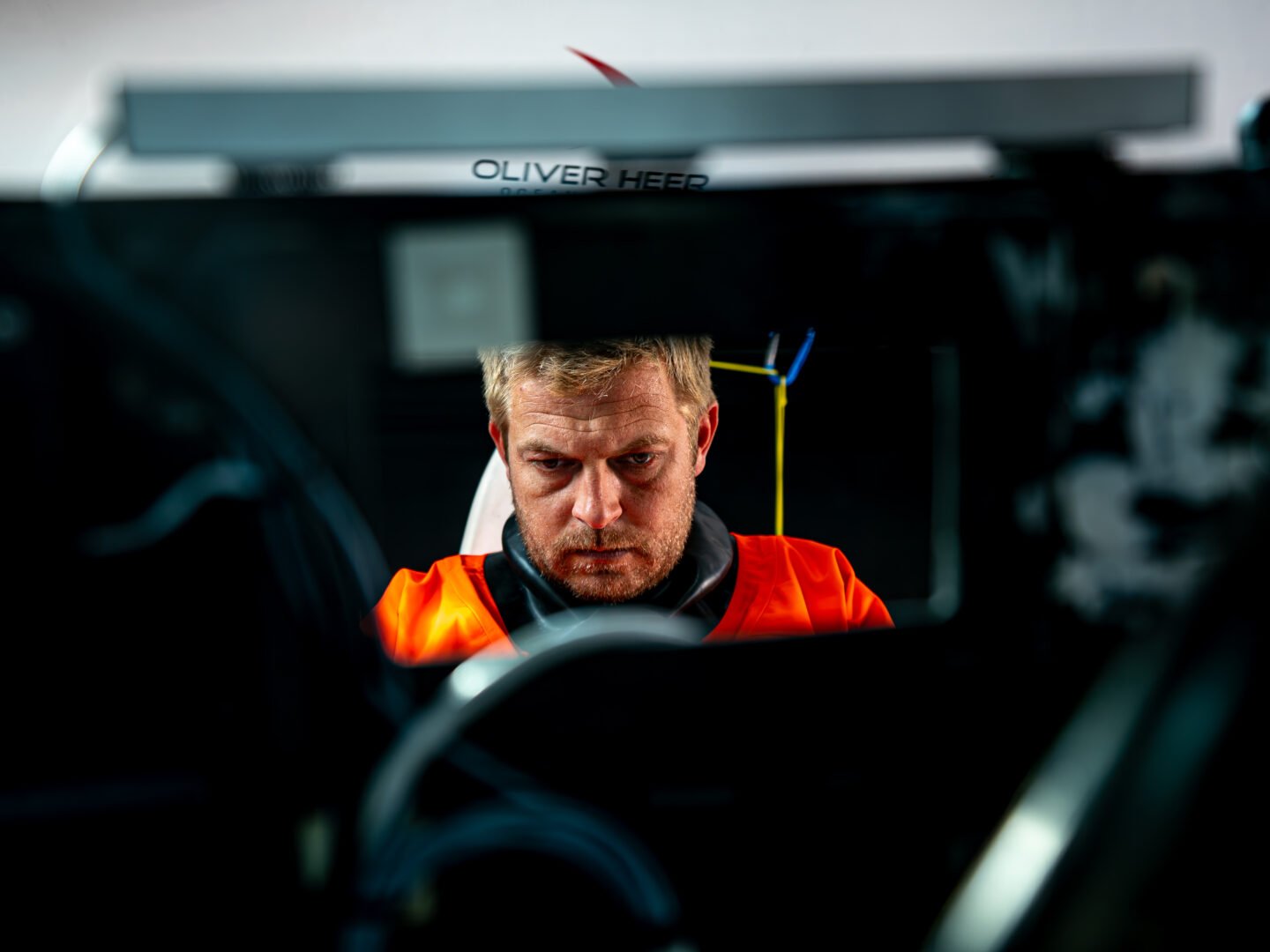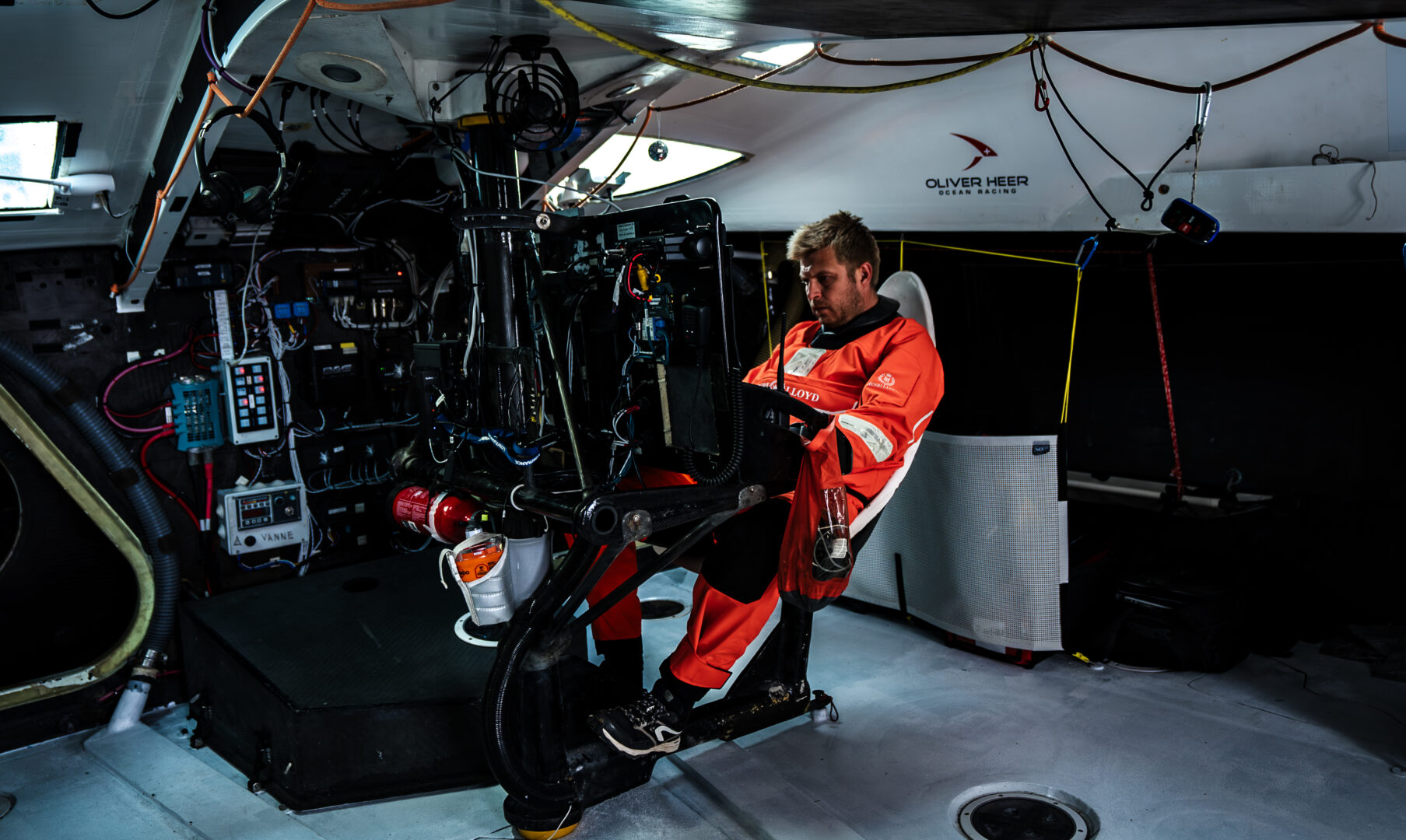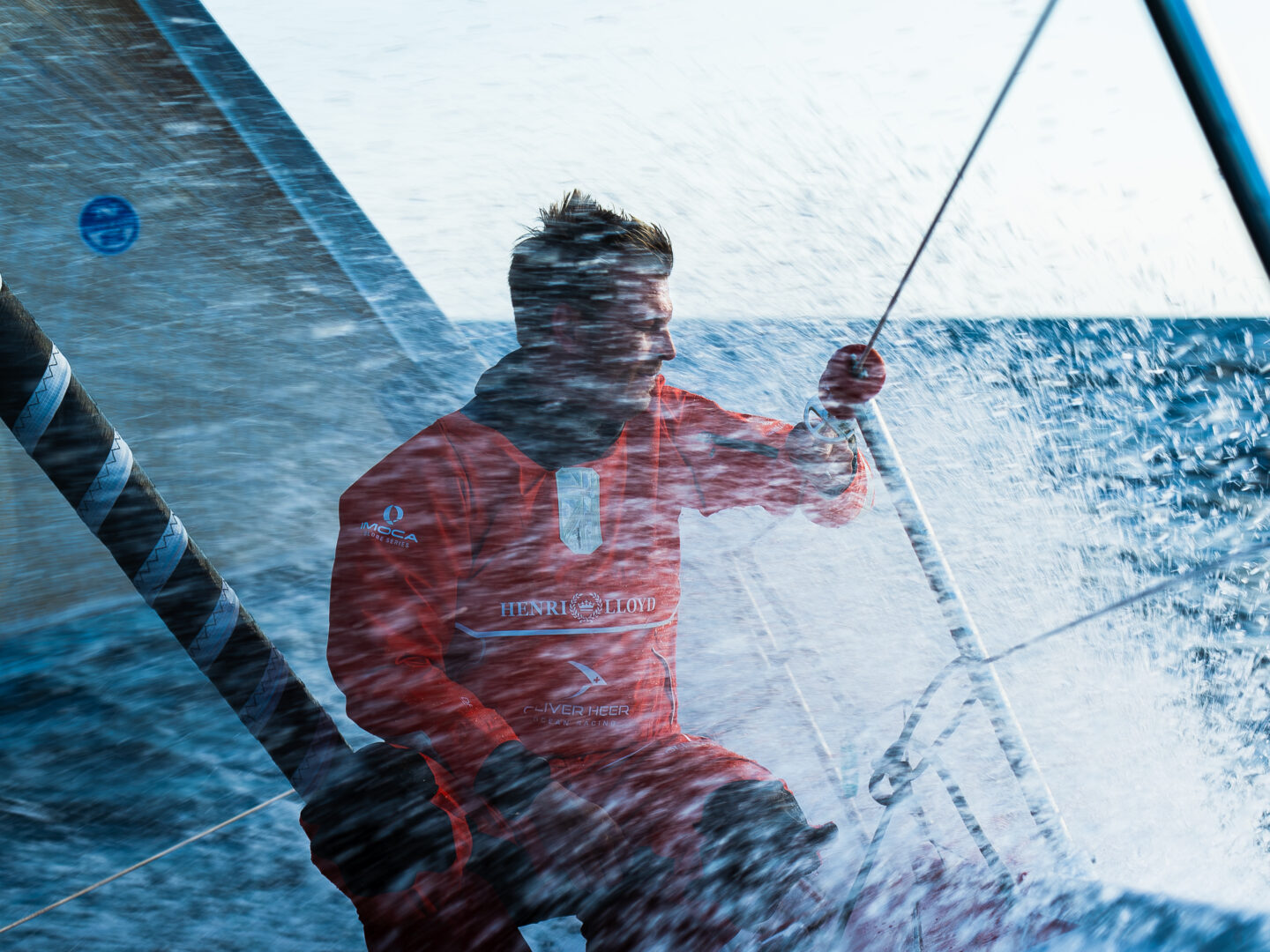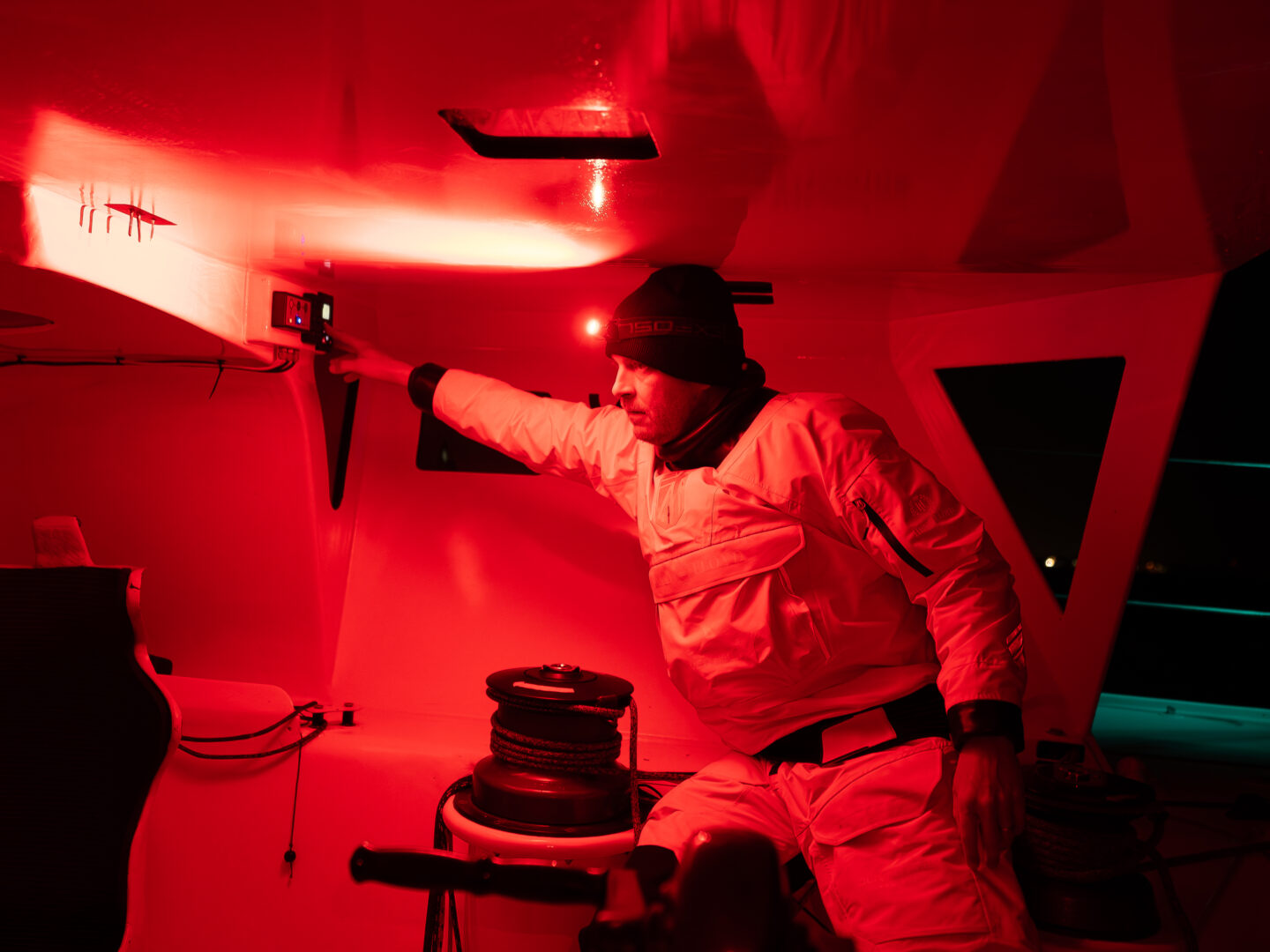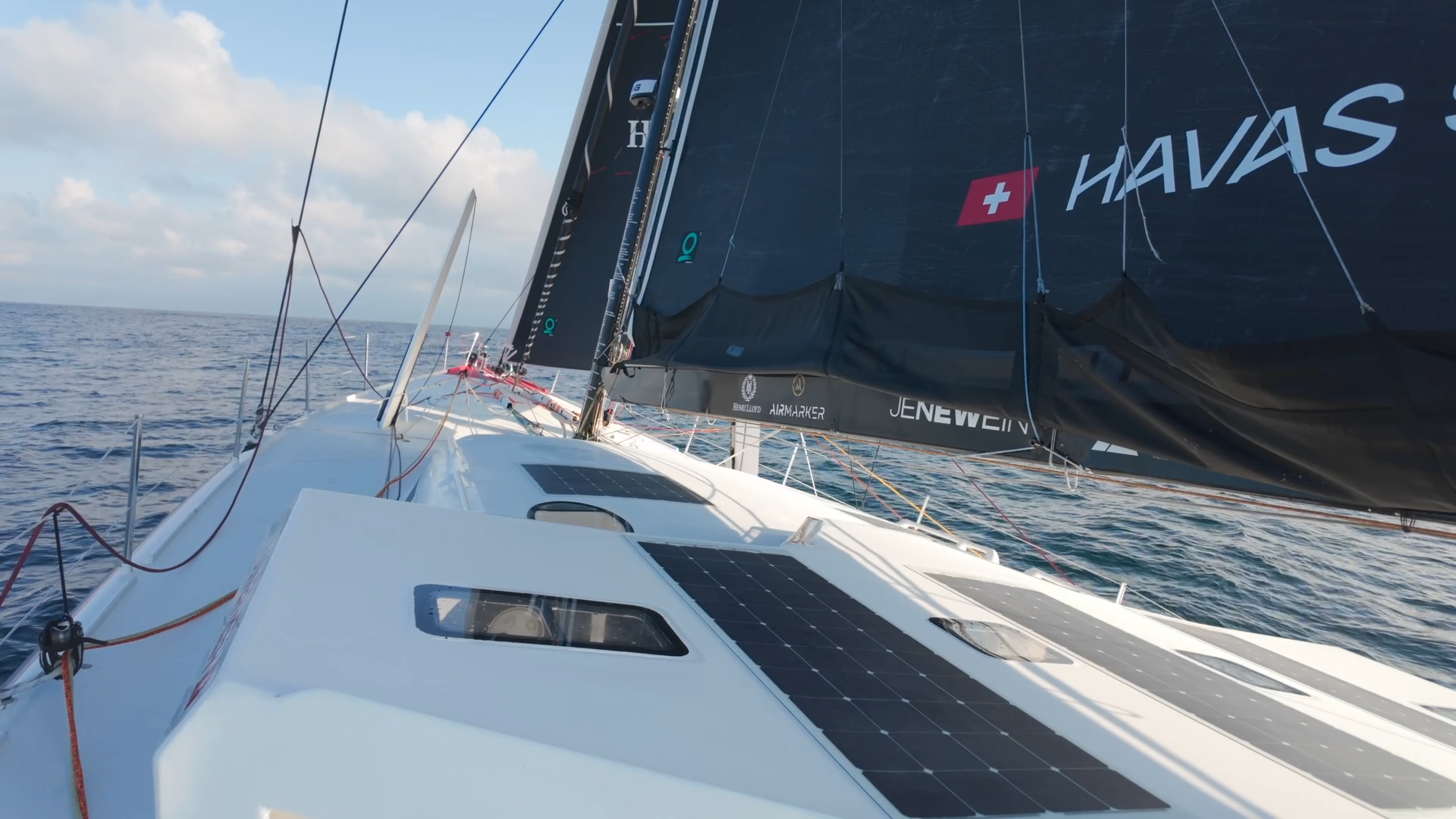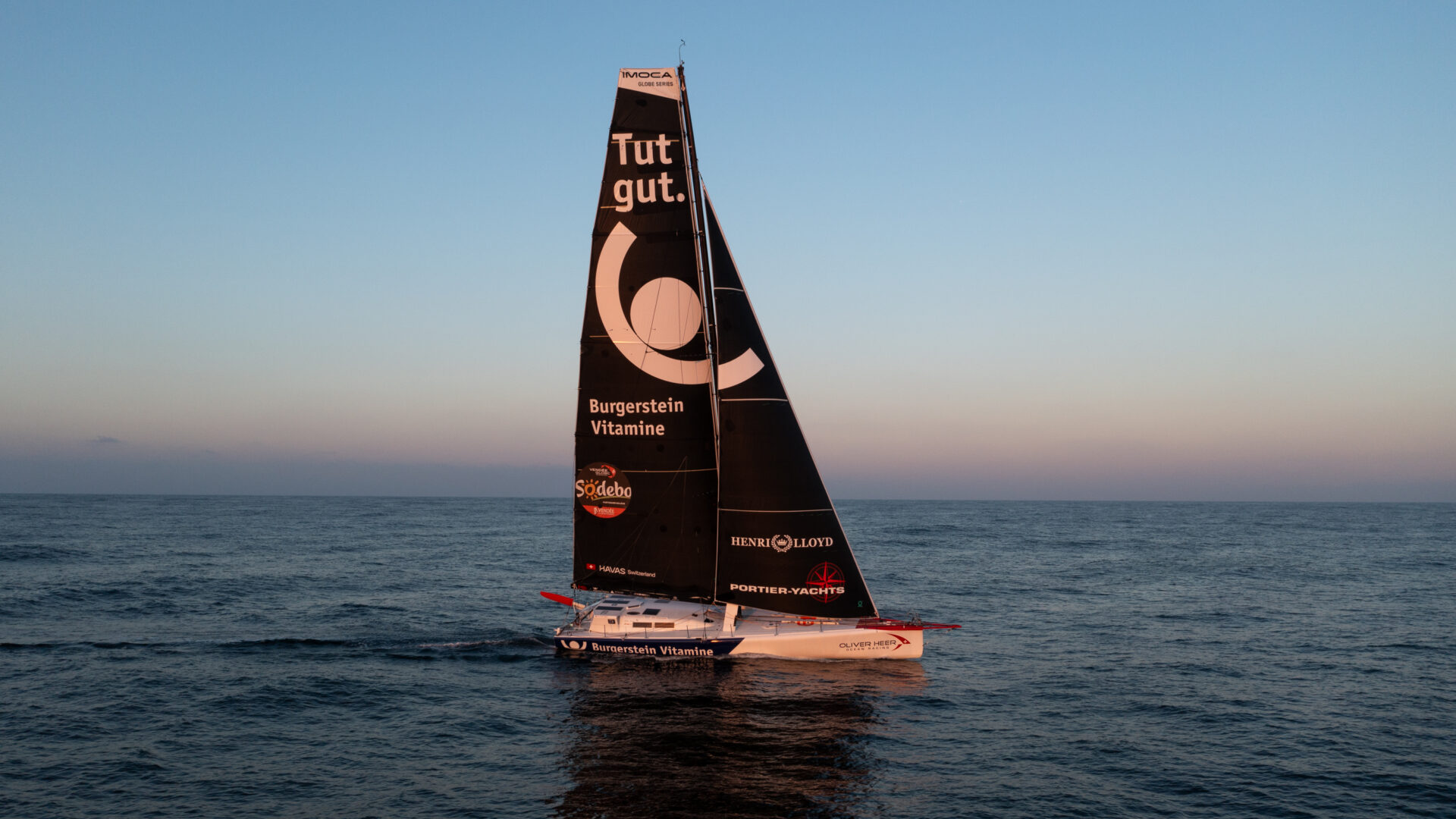At ThinkSport, we are proud to collaborate with companies that look beyond the bottom line, embracing the power of teamwork to drive sustainability and innovation. One such company is Havas, a global leader in strategic communications, whose support has helped bring purpose-driven projects to life.
Today, we share the story of Oliver Heer Ocean Racing—a project that embodies adventure, environmental responsibility, and bold ambition. Swiss skipper Oliver Heer’s offshore racing journey goes far beyond competition; it’s about pushing boundaries while championing sustainability at every turn.
Currently navigating the world’s oceans racing the Vendée Globe, Oliver couldn’t join us for this discussion for obvious reasons. However, his team offered valuable insights into his motivations, ideals, and the lessons learned from balancing elite performance with a deep commitment to protecting our planet.
This project not only showcases the impact of meaningful partnerships but also serves as a source of inspiration for companies looking to align their values with purposeful action. By connecting vision, expertise, and shared goals, Havas and Oliver Heer Ocean Racing demonstrate how collaboration can spark real change and provide valuable lessons that extend far beyond sport.
We are grateful for the opportunity to peek behind the curtain of this remarkable initiative and gain a deeper understanding of why Havas aligned with it.
Read on to discover more about this exciting collaboration and hear directly from the team driving it forward.
What motivated him to set such ambitious sustainability goals for your Vendée Globe journey, and how does this align with his personal values and vision for the future of ocean racing?
As a professional sailor, Ollie naturally spends a lot of time at sea and on the oceans. He has seen first-hand the changes in our climate, with weather systems no longer following typical historical patterns.
Seeing these changes for himself over a relatively short timeframe motivated him to do something positive to contribute in whatever way he could.
Ollie is passionate about ocean health and firmly believes that all sailors navigating these extreme locations should help contribute to scientific understanding, whether that is through individual collaborations or through partnerships arranged by the race organisers.
His journey is incredibly challenging and unique, but what would he say to people who want to contribute to sustainability and innovation in less extreme ways? How can everyday actions make a difference?
While Ollie’s opportunity is unique and directly contributes to scientific understanding of climate change, he is also a firm believer in the smaller everyday impacts that everyone, including himself and the Oliver Heer Ocean Racing team can make.
For example, the boat is equipped with multiple green-tech energy generators to reduce the amount of engine hours (and therefore diesel) Ollie will need to use during the races. In addition, the team chooses sustainable transport methods such as taking the train instead of flying where possible, using crew-houses instead of hotels, adopting meat-free Monday and making a conscious effort to re-use and recycle.
As someone dedicated to combining elite sport with environmental research, what legacy does he hope to leave for the next generation of sailors and adventurers when it comes to climate responsibility?
Ollie has already started to demonstrate that everyone has a role to play in climate responsibility. Through Ollie’s actions, he hopes that more people will become aware of the issues our planet is facing and realise that they, too, could find a way to make a sustainable difference, no matter how small.
What are some of the most valuable lessons he has learned so far about balancing performance with sustainability, and how could these be applied by other athletes or teams across different sports?
Ollie carries on board an ‘Ocean Pack’ sensor provided by the Swiss Polar Institute, and he carried an Argo float for nearly 4000 miles until he deployed it in the Southern Atlantic. These technologies are bulky and heavy, weighing over 20kg each, which adds considerable weight to the boat – and a heavier boat sails slower.
In addition, they take up space and create additional work and responsibilities for Ollie as he has to understand and maintain the systems, export the data, create social media content to share the story or deploy equipment in the right location, all whilst sailing in extremely challenging conditions.
The Swiss Polar Institute have also developed an educational program aimed at school children called Swiss Polar Class. The lessons taught in French and German follow Ollie’s journey around the world in the Vendée Globe. Ollie records videos to be broadcast every two weeks with content aligning to specific points in the educational syllabus. Children are engaged in seeing the practical relevance of what they are learning and can engage by sending questions to Ollie which he answers in the next video.
These scientific initiatives do somewhat impact Ollie’s sailing performance, but this is a trade-off he believes is worth making; the reduction in sailing performance is small compared to the potential benefits to the entire planet.
Ollie has volunteered to participate in these projects, but his vision is that it will be compulsory for every competitor to carry ocean health monitoring equipment in the future. This would make each team equal, balancing out the performance impact and provide a significantly greater contribution to climate science and sustainability.
Here is a YouTube video of Ollie deploying the Argo float.
In his view, what are the most impactful changes that sailing teams and the wider sports industry can adopt to drive sustainability? Are there accessible innovations or practices he’d recommend for those just starting this journey?
As mentioned, one approach is developing sustainability initiatives, which are compulsory for every competitor.
Another consideration is the amount of carbon-fibre used. This material, which can’t be recycled, is a crucial component of modern sailing yachts due to its high strength-to-weight ratio. By extending the active life of a boat, it is possible to reduce the carbon footprint. Therefore, rules and initiatives should reward re-using older boats rather than encouraging new boats to be built. This strategy is being implemented, IMOCA and the Vendee Globe organisation have changed the rules to allow older boats to compete in the 2028 Vendee Globe, subject to qualification.
Why does he believe partnerships are essential in advancing sustainability goals, and what qualities does he think make for a truly impactful collaboration in this space?
Partnerships are vital because the impact will be far greater as each partner contributes a different skill set in which they have the relevant expertise, experience and audience.
For a truly impactful collaboration, both parties need to be fully engaged and passionate about the outcomes. Ollie is passionate about making an impact, and as a result he takes time to learn about the systems he is carrying, how he can ensure they are running optimally and undertaking additional checks or tasks to ensure the data quality is as high as possible.
Our scientific partners have frequently expressed how beneficial and rewarding they find it to work with Ollie, whose enthusiasm and commitment helps facilitate the project, and capture the attention of the public, students and media.
You can follow Ollie’s journey live here!
